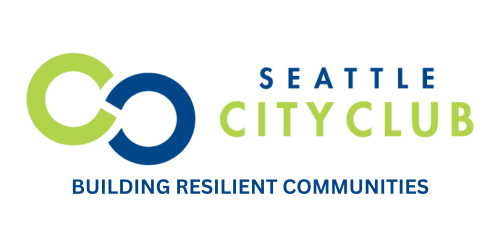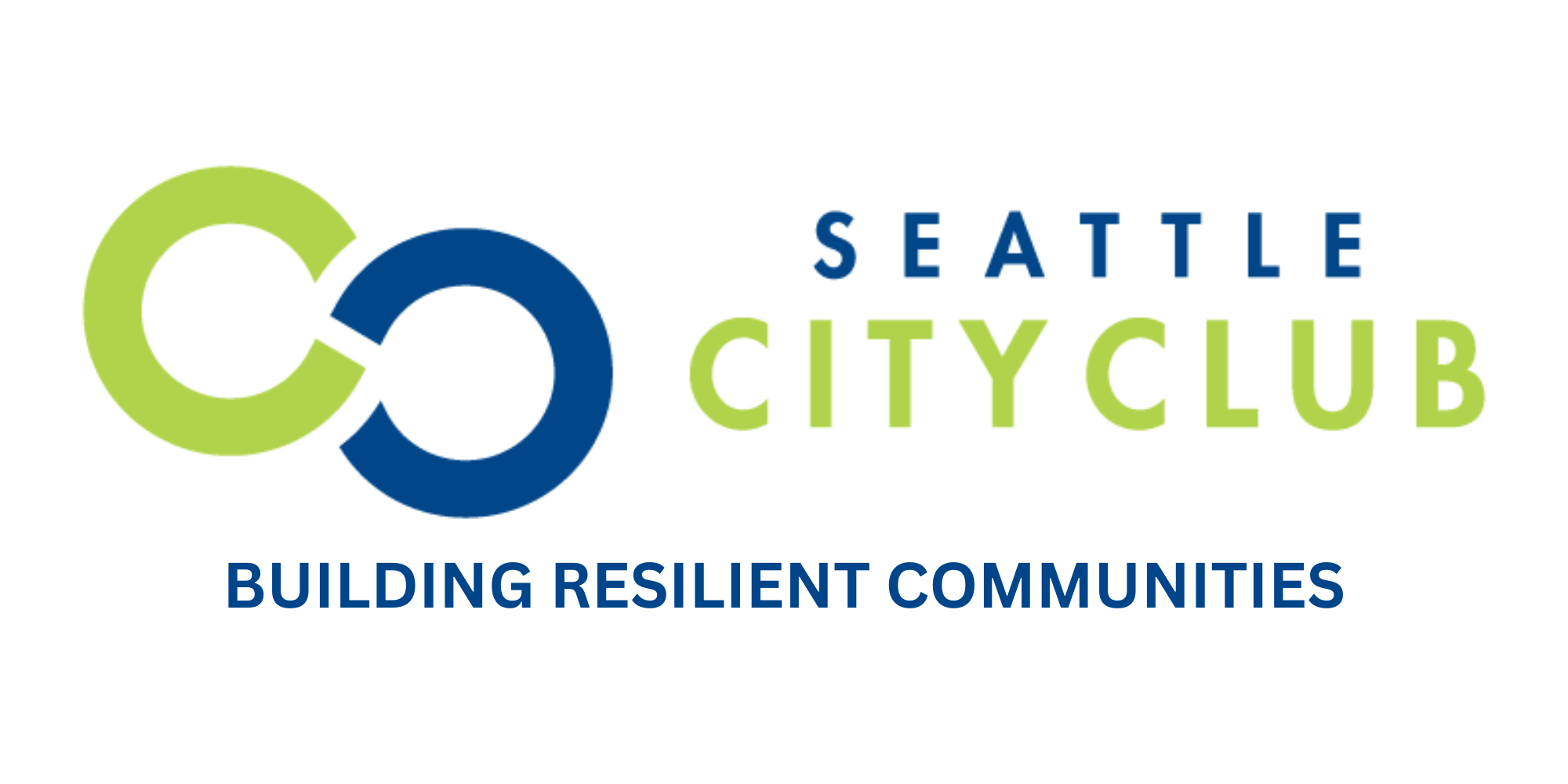We’ve created this resource page to give you access to more information about this topic in a variety of formats, from short interviews we’ve conducted with some of the speakers to a list of ways you can get involved in this issue and help work toward solutions. We hope you find this curated content valuable and please contact us at cityclub@seattlecityclub.org if you have questions or want to suggest other resources to add to this resource page.
Housing instability issues continue to impact people in our region, with the COVID-19 pandemic and related economic downturn. This Civic Boot Camp series addresses questions on affordable housing, homelessness, and legislative priorities and highlights success stories with local experts, elected officials, and community leaders. Webinars included:
Friday, March 19: Part 1 – The Housing Crisis
Friday, March 26: Part 2 – The Homelessness Crisis
Friday, April 2: Part 3 – Elected Leaders on the Housing and Homelessness Crisis
IN PARTNERSHIP WITH

Microsoft
Selected readings and resources for March 19 webinar – Short list of recent articles and resources to review prior to the webinar (See comprehensive list below).
Articles
- Washington lawmakers look for ways to exit the eviction moratorium — and prevent the fallout, Sydney Brownstone, Seattle Times, 2/17/21
- Here’s how the state will spend $2.2B in federal pandemic aid: Lawmakers plan to use the money to fight COVID, aid renters and reopen shuttered schools and businesses, Jerry Cornfield, Everett Herald, 2/8/21
- WA scrambles to avoid mass evictions as moratorium nears end – Tenants and landlords both favor more rent assistance, but some want lawmakers to go further, David Kroman, Crosscut, 2/5/21
Data
- Affordable Housing Snapshots (Cities in our region) – Housing Development Consortium (See data for your city) https://www.housingconsortium.org/maps/
- 2020 Affordable Housing Report – WA Low Income Housing Alliance (Concise summary of affordable housing in Washington) https://www.wliha.org/sites/default/files/WLIHA%20Affordable%20Housing%20Report_2020_Web.pdf
- HDC’s 10 Housing and Homelessness Data Points to Keep In Your Back Pocket – (One page list of key data points) https://www.housingconsortium.org/wp-content/uploads/2019/06/10-Housing-and-Homelessness-Data-Points-to-Keep-In-your-Back-Pocket.pdf
- Housing and…(connection between housing and key community issues) – Housing Development Consortium (Concise summaries of the connections between housing and education, health, community, transit, environment, aging and mental health) https://www.housingconsortium.org/housing-and/
Selected readings and resources for March 26 webinar – Short list of recent articles and resources to review prior to the webinar (See comprehensive list below).
Articles
- “It feels like you’re in a boat trying to paddle through a hurricane”, Interview (text) with Dawn Whitson, REACH, about working with Seattle’s homeless population, KUOW, 4/28/20
- Major Seattle Business Group Backs County-Level Tax to Address Homelessness ― With Conditions – The business group weighs in on recently introduced state legislation that would authorize King County to tax large companies with highly paid workers, Bill Conroy, Seattle Business, 2/3/20
- New survey shows homelessness, encampments are top concerns for Seattle residents – Callie Craighead, Seattle P-I, 11/9/2020
- Personal essay: There’s never a good time to be homeless in Seattle. Now it’s even harder, – Sabra Boyd, Special to The Seattle Times, 1/2/21
- Seattle won’t be counting its unsheltered homeless population this year, a number that could be higher than ever. Scott Greenstone, Seattle Times, 1/6/21
- Skyscraper builder Onni emerges as a leader of Seattle tiny house campaign, Marc Stiles, Puget Sound Business Journal, 1/26/21
Data
- Regional Homelessness Data (Dashboard Overview) – Regional Homelessness Authority – Provides a quick and easy way to see data about homelessness
Selected readings and resources for April 2 webinar – Short list of recent articles and resources to review prior to the webinar (See comprehensive list below).
-
-
- Seattle Mayor Jenny Durkan extends eviction moratorium; City Council delays vote on providing lawyers for those facing eviction, David Gutman, Seattle Times, 3/15/21
- Washington state’s rise in homelessness outpaced the nation’s, Sydney Brownstone, Seattle Times, 3/20/21
- After tension with mayor, Seattle City Council member proposes $12 million more for homeless shelters – Scott Greenstone, Seattle Times, 3/15/21
- Can King County keep using empty hotels to fight homelessness? – Providers have used area hotels and motels as a stopgap since the pandemic began. Their future use is unclear, David Kroman, 2/19/21
- Washington lawmakers look for ways to exit the eviction moratorium — and prevent the fallout, Sydney Brownstone, Seattle Times, 2/17/21
- City of SeaTac hits pause on future homeless shelters – The City of SeaTac voted to temporarily restrict additional homeless shelters. It’s the latest city to push back on King County over shelters set up in hotels. Ted Land, 12/8/20
-
TERMS
-
- Chronically Homeless Individual – a person with a disability who has been continuously homeless for one year or more or has experienced at least four episodes of homelessness in the last three years where the combined length of time is at least 12 months.
- Continuum of Care – local planning body responsible for coordinating the full range of homelessness services in a geographic area. (All Home leads this effort)
- Coordinated Entry for All– a program that ensures that all people experiencing a housing crisis have fair and equal access and are quickly identified, assessed, and connected to housing and homeless assistance based on their strengths and needs.
- Diversion – a Housing First, person-centered, strengths-based approach to help individuals identify the choices and solutions to end their experience of homelessness with limited interaction with the crisis response system.
- Housing Choice Vouchers (Section 8 vouchers): a federal program administered by local housing authorities. Eligible tenants receive vouchers they can use to help pay for apartments in the private market. Tenants pay between 28 and 40 percent of their household income for rent and utilities, and the housing authority pays the difference between this amount and the amount the landlord requests
- Housing First – offers permanent, affordable housing as quickly as possible and the supportive services to help people keep their housing.
- Market Rate Housing – the prevailing monthly cost for rental housing. It is set by the landlord without restrictions
- Permanent Supportive Housing – providing housing assistance and supportive services on a long-term basis to formerly homeless people.
- Person Experiencing Homeless – a person who lacks a fixed, regular, and adequate nighttime residence. (This term is preferred over “homeless person”)
- Point-in-Time Counts – 1-night estimates of both sheltered and unsheltered homeless populations in King County held each January.
- Project-based Section 8 housing – a federal program which grants a long-term rent subsidy to developers of privately owned rental housing stock to in exchange for affordable rents
- Public Housing – housing owned and run by a local housing authority. To be eligible to live in public housing, you must meet program requirements including being low income. In most cases, rent including utilities can comprise no more than 30% of your income
- Rapid Rehousing – providing temporary housing assistance to people experiencing homelessness, moving them quickly into permanent housing.
- Subsidized Housing – all federal, state or local government programs that reduce the cost of housing for low- and moderate-income residents. Housing can be subsidized in numerous ways including tenant-based mechanisms such as vouchers or project-based ones, such as tax credits.
- Transitional Housing Programs – provides people experiencing homelessness a place to stay combined with supportive services for up to 24 months.
Policy Glossary – Housing Development Consortium
Housing – related glossary – Housing Development Consortium
SELECTED LOCAL ORGANIZATIONS
Housing-related
-
-
- Africatown Community Land Trust – Property, business and housing development in Central District
- Byrd Barr Place – Multi-service agency that provides housing assistance
- Community Roots Housing (Formerly Capitol Hill Housing) – Provides affordable housing
- Habitat for Humanity – Washington State – Provides affordable housing
- Homesight WA – Promotes affordable home ownership in SE Seattle
- Hopelink – Multi-service agency that provides housing assistance
- Housing Connector – Public/private partnership to provide affordable housing
- Housing Development Consortium – Advocates for affordable housing in King County
- Low Income Housing Alliance – Advocates for state-wide affordable housing
- Mercy Housing – Provides low-income housing
- Solid Ground – Multi-service agency addresses housing and homelessness
- Tenants Union – Advocacy for tenant’s rights
- Washington Low Income Housing Alliance – Advocacy for affordable housing
-
Homelessness-related
-
-
- ACLU – Homelessness Advocacy Center
- All Home King County – Coordinates cross-sector efforts to address homelessness. Source for local data.
- Bread of Life Mission – Homelessness services and shelter in Pioneer Square, Seattle
- Chief Seattle Club – Homelessness services and shelter in Pioneer Square, Seattle for Native/indigenous community members
- Compass Housing Alliance – Housing and Homelessness services and shelter
- City of Seattle Homelessness Response – Details the City’s response to the homelessness crisis
- Downtown Emergency Services Center – Homelessness services and shelter in Pioneer Square, Seattle
- Downtown Seattle Association – Homelessness Response
- Firesteel – Network of YWCA’s addressing homelessness
- Facing Homelessness – Ballard-based nonprofit with direct services and tiny home project
- Farestart – Job training in the food industry for people experiencing homelessness
- Interfaith Task Force on Homelessness – Policy Advocacy and assistance to vehicle residents
- King County 211 Crisis Connections – Comprehensive information on health and human services in King County
- King County – Housing and Community Development – Homeless Housing Program
- Low Income Housing Institute – Administers Tiny House Villages
- National Alliance to End Homelessness – Advocates on federal level. Provides links to nationwide data
- Path with Art – Uses art to help people address trauma from homelessness
- Plymouth Housing – Long-term and permanent supportive housing
- Queer the Land – Housing for LGBTQ+ community members
- REACH – Direct services to people experiencing homelessness
- Real Change News – Provides jobs and news in service to homelessness advocacy
- Recovery Café – Helps people recover from the traumas of homelessness, addiction and mental health challenges
- Roots – Young Adult Shelter
- Samaritan – Digital tools to help people experiencing homelessness
- Seattle/King County Coalition on Homelessness – Advocacy tools and resources on budget and policy decisions. (See their Resources tab for links to local organizations).
- Seattle University Homeless Rights Advocacy Project
- Seattle University – Project on Family Homelessness
- Third Door Coalition – A coalition of business, researchers and service providers to solve chronic homelessness in King County within five years through Housing First/permanent supportive housing.
- United Way of King County – Homelessnesss-related initiatives
- Uplift NW (Formerly Millionair Club)
- Union Gospel Mission – Shelter in Pioneer Square
- We Are In – Coalition of business, non-profits and foundations addressing homelessness
- Wellspring Family Services – Multi-service agency that addresses family homelessness
- YouthCare – Addresses youth homelessness in University District
-
RESOURCES
Reports, data and fact sheets
-
-
- Affordable Housing Snapshots (Cities in our region) – Housing Development Consortium https://www.housingconsortium.org/maps/
- 2020 Affordable Housing Report – WA Low Income Housing Alliance https://www.wliha.org/sites/default/files/WLIHA%20Affordable%20Housing%20Report_2020_Web.pdf
- HDC’s 10 Housing and Homelessness Data Points to Keep In Your Back Pocket https://www.housingconsortium.org/wp-content/uploads/2019/06/10-Housing-and-Homelessness-Data-Points-to-Keep-In-your-Back-Pocket.pdf
- Housing and…(connection between housing and key community issues) – Housing Development Consortium https://www.housingconsortium.org/housing-and/
- Data and Resources – Housing Development Consortium https://www.housingconsortium.org/resources/
- Fact sheets and data on housing and homelessness – WA Low Income Housing Alliance https://www.wliha.org/resources/fact-sheets-and-publications
- Anti-oppression resources, WA Low Income Housing Alliance https://www.wliha.org/equity-housing-justice/readings-resources
-
Homelessness-related
-
-
- Seattle/King County Point-in-Time Count of Individuals Experiencing Homelessness, 2020 See summaries starting on page 5
- Statewide Point in Time Count data: https://deptofcommerce.app.box.com/s/ek9pu2w07oz8d77gq6c1rlpxuwcw0515
-
Housing-related
-
-
- The State of Evictions: Results from the University of Washington Evictions Project, University of Washington, 2/17/19 – See Executive summary
- National Low Income Housing Coalition GAP report: https://reports.nlihc.org/gap/2018/wa
- National Low Income Housing Coalition Out of Reach report: https://reports.nlihc.org/oor/washington
- Census Bureau Pulse Survey data (scroll to housing tables and download, then be sure to find the WA tab, and/or Seattle metro area tab): https://www.census.gov/data/tables/2021/demo/hhp/hhp22.html
-
Action guides, toolkits workbooks
-
-
- Racial Equity toolkit – Housing Development Consortium – https://www.housingconsortium.org/wp-content/uploads/2016/11/Racial-Equity-Toolkit-Downloadable.pdf
- Toolkit to combat the criminalization of homelessness, WA Low Income Housing Alliance, 2020 – https://www.wliha.org/sites/default/files/2021-01/WLIHA%20Toolkit_2020_online%20version%20w%20handouts_v3.pdf
- The Florida Project Action Guide – https://hinrichc.files.wordpress.com/2018/03/florida-project-afs14440_tfp_action_guide_c8-final-2-26-18_revise-hh.pdf
- Discussion guide for The Florida Project – https://hinrichc.files.wordpress.com/2018/03/florida-project-afs14440_tfp_discussion_guide_c5-final-2-26-18_revise-hh.pdf
- Get involved – Poster and Tips for Getting Involved – Project on Family Homelessness, Seattle University https://projectonfamilyhomelessness.org/get-involved/
-
CIVIC ENGAGEMENT IDEAS
Our region’s civic health depends on each one of us to get involved in civic life. Here are some ways you can support housing and homeless services and initiatives:
-
-
- Advocate: Contact your legislators to support housing and homeless policies. Learn about advocacy through Seattle/King County Coalition on Homelessness and Washington Low Income Housing Alliance
- Connect: Connect with people experiencing homelessness to hear their stories. (See Facing Homelessness)
- Donate: Give directly to a local nonprofit that works on housing and homeless services. (See organizations listed above)
- Employ: Hire a day-laborer or contract with organizations that provide jobs and skill-based training. (See Uplift, Farestart and YWCA.)
- Learn: Follow news and blogs about the homeless crisis. (See Seattle Times – Project Homelessness and Crosscut for their coverage). Here personal stories of those who have experienced homelessness at Firesteel (Story Corps)
- Support Your Community: see ideas from the Seattle Metropolitan Chamber
- Volunteer: See United Way of King County, Seattle Works and CrisisConnections for volunteer opportunities.
-
ARTICLES AND MEDIA
General resources for news, blogs, updates and archived articles on homelessness.
-
-
- Erica C Barnett – C is for Crank Blog – https://thecisforcrank.com/
- City of Seattle Homelessness Response Blog – https://homelessness.seattle.gov/
- City of Seattle Web page – Addressing Homelessness http://www.seattle.gov/humanservices/about-us/initiatives/addressing-homelessness
- The Conversation – (Independent and not-for-profit, it is part of a global network of newsrooms, with many articles from researchers and academics on homelessness from the US, UK and Australia – https://theconversation.com/us/topics/homelessness-10211
- Crosscut – Homelessness – https://crosscut.com/homelessness
- Huffpost – Articles on Homelessness – https://www.huffpost.com/impact/topic/homelessness
- Seattle/King County Coalition on Homelessness Blog – http://blog.homelessinfo.org/
- Seattle Times – Homelessness – https://www.seattletimes.com/tag/homelessness/
- Sinan Demirel – Author Profile and articles on homelessness in Seattle – Crosscut – http://crosscut.com/author/sinan-demirel/
- Groundviews – Solid Ground blog on Housing and Homelessness – https://www.solid-ground.org/groundviews/housing-homelessness/
- The Guardian – Outside in America – Western Edition – https://www.theguardian.com/us-news/series/outside-in-america
- Lauren McGowan Blog – Ending hunger, homelessness, and the cycle of poverty…in heels. http://laurenemcgowan.com/lauren/
- Los Angeles Times – Coverage of Homelessness – https://www.latimes.com/topic/social-issues/homelessness/14009000-topic.html
- The New York Times – Coverage of Homelessness – https://www.nytimes.com/topic/subject/homelessness
- Q13 Fox news – Homeless Crisis: https://q13fox.com/tag/homeless/
- Real Change News – http://realchangenews.org/
- Seattle Weekly – https://www.seattleweekly.com/tag/homelessness/
- United Way of King County – Website links to homeless articles https://www.uwkc.org/homelessness/
- US News – Articles on Homelessness – https://www.usnews.com/topics/subjects/homelessness
-
Social media – Twitter Feeds
Podcasts
-
-
- Outsiders Podcast – Seattle Times Project on Homelessness and KNKX – a series of podcasts following people experiencing homelessness in Olympia
- Seattle Growth Podcast – Season 5, Episode 1 – featuring homelessness – 6/19/18 – http://seattlegrowthpodcast.com/season-5/
-
Videos
-
-
- Women, Tiny House Villages, and Locking Doors, Low Income Housing Institute, 11/5/19 (6:42) – Describes Tiny House village living for women.
- KOMO News series on homelessness – https://komonews.com/news/local/komo-news-special-seattle-is-dying
- Seattle is Dying (describes theft, crime, filthy conditions resulting from inadequate response to homelessness), Eric Johnson, 3/14/19 (59 minutes)
- There But For the Grace of God (interviews with people experiencing homelessness in Seattle), Eric Johnson, 6/1/16 (52 minutes)
- Watch: 9 intimate stories of homelessness, told live at Ignite Project Homeless, Seattle Times, Updated June 14, 2018 – https://www.seattletimes.com/seattle-news/homeless/watch-9-intimate-stories-of-homelessness-told-live-at-ignite-project-homeless/
- Ending Homelessness Block by Block, Rex Hohlbein & Jenn LaFreniere, 5/22/18 (19 min) https://www.youtube.com/watch?v=OnNM51QWrWA
- The Florida Project – Film – A story about childhood poverty and homelessness – Trailer – https://www.youtube.com/watch?v=WwQ-NH1rRT4
- A New High (on Netflix) – Documentary about people experiencing homelessness climbing Mt. Rainier – Trailer – https://www.youtube.com/watch?v=RFRNT3f79o0
- Inocente – Documentary about youth homelessness – Trailer: https://www.youtube.com/watch?v=DRbytVjghRA
- Invisible People – Vlog – learn about the “invisible” homeless – https://invisiblepeople.tv/
- How architecture can create dignity for all, John Cary, TEDWomen 2017 https://www.ted.com/talks/john_cary_how_architecture_can_create_dignity_for_all
- CityStream: Portraits of Homelessness, Seattle Channel, October 15, 2015, 4:26 –http://www.seattlechannel.org/CityStream/segments?videoid=x59596
- The story of Rex Hohlbein, an architect turned homeless advocate, who is on a mission to change public perception of the homeless, Enrique Cerna, Nov 2014 https://kcts9.org/programs/in-close/news/facing-homelessness
-

